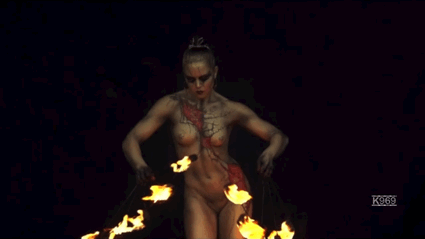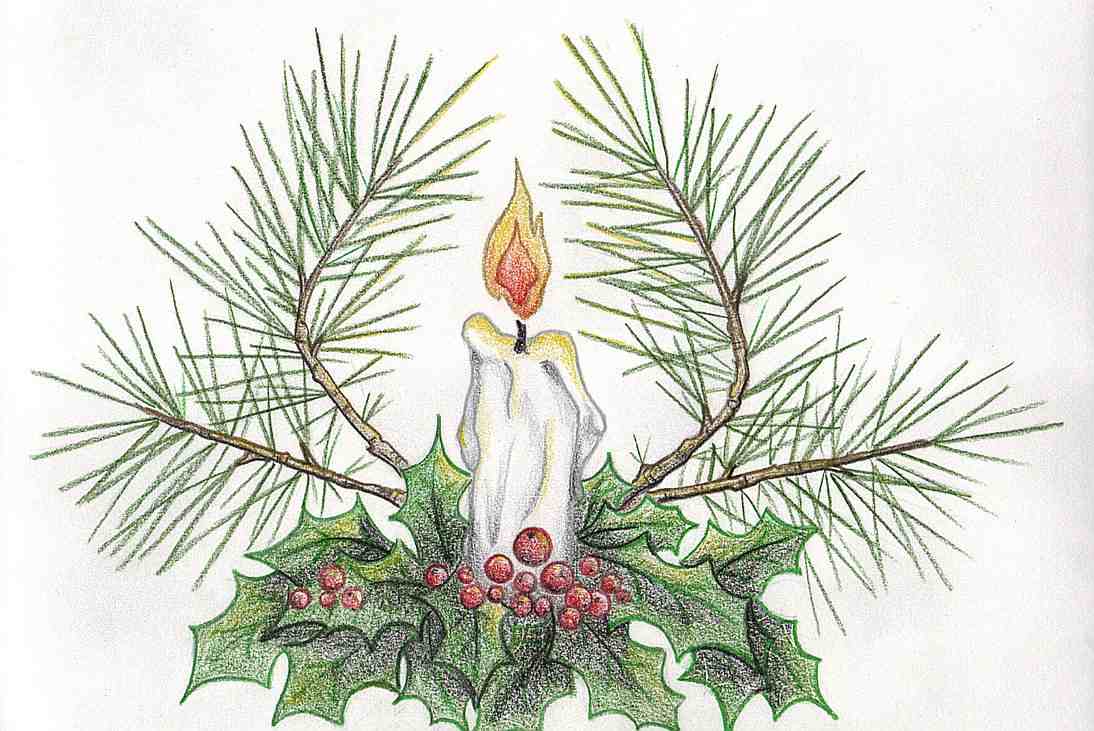“Twelfth-day” is the twelfth day after Christmas, or Epiphany, occurring on the 6th of January. It is a festival of the Christian church in commemoration of the manifestation of Christ by the star which guided the magi to Bethlehem. “Twelfth-night” is the eve of Epiphany, when many social festivities and superstitious rites were observed. “Twelfth-tide” is the time or festival of twelfth-day. “The Twelfths” are the twelve days between Christmas and Epiphany. Epiphany is also called “Little Christmas,” being the social festival which brings the merry-makings of the Christmas cycle to an end.
A special cake, called “Twelfthcake,” is prepared for the festivities on twelfth-night. A bean or a coin is baked into it, and, the cake being divided by lot, whoever draws the slice containing it is entitled to preside as king or queen over the festivities. This custom is a relic of the old Roman festival of the Saturnalia, at the close of which the Roman children drew lots with beans to see who would be king.
A series of cards, called “Twelfth-night cards,” representing different characters such as king, queen, minister, maids of honor, or ludicrous or grotesque personages, were distributed among the guests, who had to assume the respective characters during the festivities.
A curious custom is the annual cutting of the Baddeley cake at Drury Lane Theater, London, on Twelfth-night. William Baddeley, the last actor to wear the uniform of “His Majesty’s Servants,” left £100 in bank stock, the income from which was to buy a Twelfthcake, with wine and punch, which the ladies and gentlemen were requested “to partake on every Twelfth-night in the great greenroom.”
The Devonshire farmers have an old custom of wassailing the fruit trees on the eve of Twelfth-day. They proceed with their servants, who carry large pitchers or milk pails filled with cider, to their orchards. Here one tree is selected as representative of the rest, and saluted with certain incantations; cakes are dipped in the cider and hung up on the branches, and the tree is sprinkled with the cider. They all dance merrily around it and afterward return home to feast. This is done in order that the trees should bear more fruit.
“Wassail the trees that they may bear
You many a plum and many a pear;
For more or less fruits they will bring
As you do give them wassailing.”
On twelfth-day in Ireland, they set up a sieve of oats as high as they can and in it a dozen candles. In the center is a larger one, all lighted, so as to have luck all the year.
In Styria, Austria, Epiphany is commonly called St. Bertha’s day, and it is believed that the devil is abroad in great force on that St. Bertha’s night. If one makes on that night a magic circle, and stands therein holding elder-berries gathered on St. John’s night, one would obtain the magic fern-seed which will come wrapped in a chalice cloth, and confer on one the strength of thirty or forty men.
On Epiphany, or as it is called in Bohemia, “Three Kings’ Day,” the festival of the three wise men who visited the Infant Saviour, three crosses should be made on every door, not only of the house but on the stables, pens and coops, to keep witches away. Bonfires are made at night and brooms are thrown as high as possible, all on fire, to represent the burning and the scattering of the witches. But beware that you do not point at one of the flying brooms! One of the fiery darts will pierce your finger.
When Queen Elizabeth visited Sudely Castle, Gloucestershire, about 300 years ago, on twelfthnight, “drawing the bean and pea” took place in her presence. No reason is given for the introduction of the bean and pea into the twelfth-cake, but Brand takes us to the ancient Greeks for the bean, and it may have been used on account of its mystic meaning. It was not allowed to be used for food by any of the disciples of Pythagoras lest it should be a receptacle of a departed soul, to eat which would be as impious as eating human flesh.
In Macedonia, on the 6th of January, which commemorates the baptism of Jesus Christ, a cross is thrown into the river by the priests and dived for by the men. Sick children are dipped into the water for healing. Some of this holy water, which is considered to have medicinal value, is carried home by the people, and health is insured to all who wash in it. In Kavadartsy, some of this water is used to make new leaven for the bread, and some is also thrown into the well. In Monastir straw dipped into this holy water, is wrapped around the trunks of trees to make them fruitful.
On the eve of Epiphany, the Albanians also roll a round cake to the middle of the vineyard, and then distribute it in bits for the ravens, crows, and other birds, saying: “Assemble, oh ravens, oh crows, and eat, so that we may eat and drink and you do us no harm.” This will so appeal to the honor of the birds that they will not touch the vines.
In Bohemia, the inscription “three kings” is made upon the door of the chief room of the house from the inside, every year on the 6th of January, “Three Kings’ Day” by the priest, teacher, or sexton of the town, with a blessed crayon or chalk, in the form of C x M x B x 1899 (or whatever year it may be), which means the names of Caspar, Melchior, and Balthasar, the three wise men who paid court to the Infant Jesus. This inscription protects the house from evil spirits and prevents them entering the rooms. It also brings blessings to the inhabitants. This we find of course only in Catholic families, and none of their domiciles are without it. The priest blesses the chalk for the believers, that they make inscriptions also upon the doors of their stables and barns to repel all witchcraft and magic that might do harm to the cattle or crops.
More Epiphany and Twelfth Night Lore:
- Brooms bound during the twelfths protect against witchcraft.
- Do no threshing in the twelfths, or all the corn within hearing will be spoiled.
- If cattle are fed with stolen kale (a kind of cabbage) during the twelfths, they will come to no harm.
- Whatever is dreamed during the twelfths will come to pass in the twelve months of the year.
- If a broken arm is bound five or six times round with thread spun in the twelfths, it will speedily become sound.
- In the twelfths magpies should be shot and burnt to a powder, which is good for the ague.
- Those who wear linen made from yarn spun during the twelfths will be devoured by wolves.
- No moth will come into yarn spun during the twelfths.
- If hens are fattened with peas during the twelfths, they will lay many eggs.
- At twelfth day the days are lengthened a cock’s stride.
- In the country between Hamelin and Mindcn and in other places, it is believed that no dung should be taken out of the cow house during the twelfths, else the cattle will be sick the following year.
- He who steals on twelfth-night, can steal safely for a year.
- If you eat peas or beans on twelfth-night, you will fall sick.
- On the twelfth-night the dead walk, and on every tile of the house a soul is sitting waiting for your prayers to take it out of Purgatory.
- If in the twelve-nights neither master nor man bring fresh-blackened shoes into the stables, the cattle will be bewitched.
- On twelfth-night in Scotland a board is covered with cow’s dung, candles set in it, and sprinkled with ash to make them light easily. They are then lighted, each being named for someone present, and as each dies, so will the life of the owner.
- In the “Book of Precedents,” published in London in 1616, we read that the 6th of January was five times lucky for Charles, Duke of Anjou, and equally lucky for the Earl of Sunderland.
- If a Danish girl wishes to see her future husband, she must repeat the following verse before going to bed on the eve of Epiphany: “Ye three holy kings to you I pray, That ye to-night will let me see, Whose cloth I shall spread, Whose bed I shall make, Whose name I shall bear, Whose bride I shall be.”
- Be sure for luck’s sake to spin off all the distaffs on the morrow after twelfth-day.
- The twelve days after Christmas make the almanac for the year.
- Tis thus believed in Trinity Bay, New Bedford, Mass., and Nova Scotia. In Nova Scotia it is said that the first seven days of January foretell the first seven months of the year.
- Those who do not spin in the twelfths may not wind on the 13th. (North Germany)
- In Transylvania whoever dies on the feast of Epiphany, is considered lucky.
- On the eve of Epiphany, the Albanians sprinkle the grapevines with holy water, believing that this will induce them to bear well.
Found in:
Encyclopaedia of Superstitions, Folklore, and the Occult Sciences of the World
Krazelna: Day of Hekate
Krazelna: Day of Hekate
Krazelna: Day of Hekate
Rachel V Perry: Emancipation Day
Rachel: The Nemesia




Leave a Reply